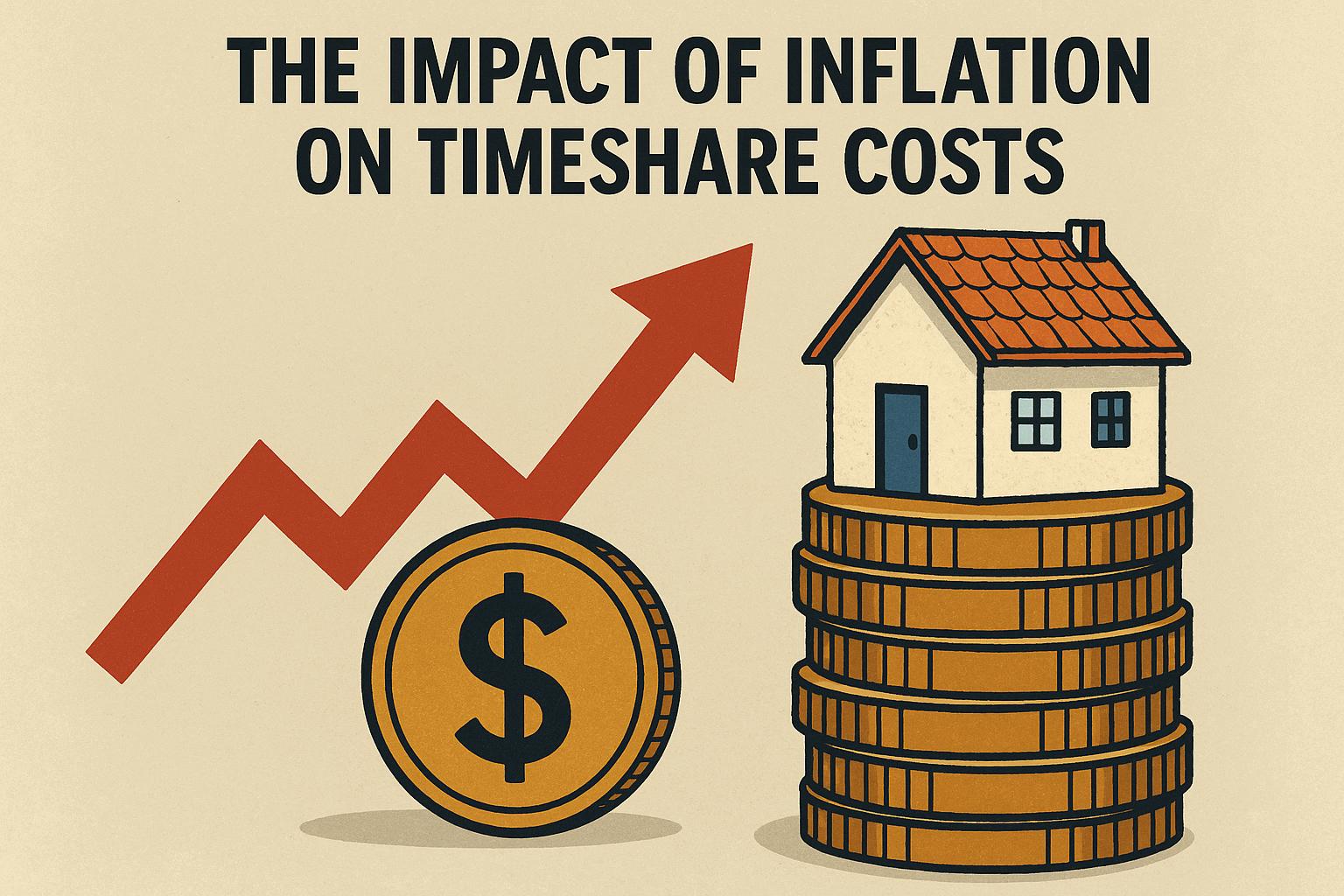Understanding Inflation’s Influence on Timeshare Costs
Inflation is an intricate economic concept that can significantly impact various consumer expenses, including costs associated with timeshares. A thorough understanding of how inflation influences these costs enables timeshare owners and potential buyers to better plan for future financial changes and make informed decisions.
The Basics of Inflation
Inflation is defined as the rate at which the general level of prices for goods and services rises, gradually reducing the purchasing power of money. This economic phenomenon is typically measured annually through indices such as the Consumer Price Index (CPI). During inflationary periods, each unit of currency buys fewer goods and services than it previously did, affecting various sectors of the economy. The concept of inflation is not limited to a single country’s economy; it can affect global markets and is a factor that economists and policymakers closely monitor.
Inflation’s effects can be both subtle and profound. For example, it may result in higher grocery bills or, from a broader perspective, influence interest rates set by central banks. Understanding inflation’s mechanics involves recognizing its causes, which can range from increased demand for products and services to currency devaluation or supply chain disruptions.
Impact on Timeshare Maintenance Fees
One of the more direct ways inflation influences timeshare costs is through maintenance fees. These fees are essential for covering the cost of maintaining the property itself and the common areas accessible to timeshare owners. They typically rise annually to match inflationary pressures. As prices of labor, utilities, and other operational expenses increase, timeshare resorts often pass these costs on to the owners, resulting in escalating maintenance fees.
Timeshare maintenance fees, thus, become a predictable yet concerning element of ownership, particularly for those on fixed incomes or tight budgets. Typically, a detailed breakdown of these fees is provided to owners, showcasing how inflation specifically affects labor wages, material costs, and other expenses involved in maintaining high standards for the property and its amenities.
Financing and Loan Payments
For individuals who finance their timeshare purchases instead of purchasing them outright, inflation also carries implications for interest rates. Many timeshare loans are structured with variable interest rates. These rates are adjusted according to market conditions, often influenced by prevailing inflation rates. As a result, inflation can lead to increased interest rates, thereby raising monthly loan payments.
Understanding the impact of inflation on financing requires those looking into timeshares to consider the terms of their loans carefully. It’s critical to question whether the interest rate is fixed or variable and to understand how increases in the rate due to inflation may affect long-term payment obligations. For a more detailed examination of the correlation between inflation and loan interest rates, peers into well-researched resources or financial journals.
Resale Value and Secondary Market
Inflation’s reach extends to the resale value of a timeshare as well. Generally, in periods characterized by high inflation, consumers may become more cautious with their spending, particularly on luxury items or non-essential purchases. This caution can lead to depressed demand in the secondary timeshare market. As potential buyers weigh their financial priorities, the number of prospective offers may diminish, leading to a potentially decreased resale value for timeshare owners.
For existing owners considering selling their timeshares, understanding market conditions is crucial. Engaging professional valuation services or agencies specializing in the secondary timeshare market can provide insights into prospective resale values, accounting for prevailing economic conditions such as inflation.
Understanding the Long-term Financial Commitment
Owning a timeshare necessitates a clear understanding of the long-term financial commitment involved, particularly as inflation is bound to affect such investments over time. Prospective buyers should thoroughly assess whether the potential increase in costs due to inflation aligns with their overall financial strategy and capability.
There’s a need for comprehensive financial planning before committing to timeshare purchases. Prospective buyers should integrate considerations of inflationary trends into their broader financial outlook, ensuring that the commitment aligns with personal income projections and lifestyle goals.
Tips for Managing Inflation’s Impact
To alleviate the inevitable impact of inflation on timeshare expenses, owners might adopt practical strategies. For example, they could engage in negotiating maintenance fees, particularly if they demonstrate loyalty or long-term investment in the property. When market conditions show favorable indices, refinancing loans to secure better interest rates can also lead to notable savings over time.
Moreover, maximizing usage of the timeshare amplifies its value, balancing the cost against actual use. Active participation in owners’ associations or groups can provide collective bargaining power, enabling more effective negotiation with management companies or developers on aspects such as fee increases.
In conclusion, while inflation contributes to the potential for rising timeshare costs, understanding these economic dynamics can empower both prospective buyers and current owners to make sound financial decisions. By staying informed and proactive, owners can more effectively manage their expenses and enhance the value derived from their timeshare investment. Adapting to inflation is part of the larger financial literacy necessary for optimizing the ownership experience.

 The impact of inflation on timeshare costs.
The impact of inflation on timeshare costs.